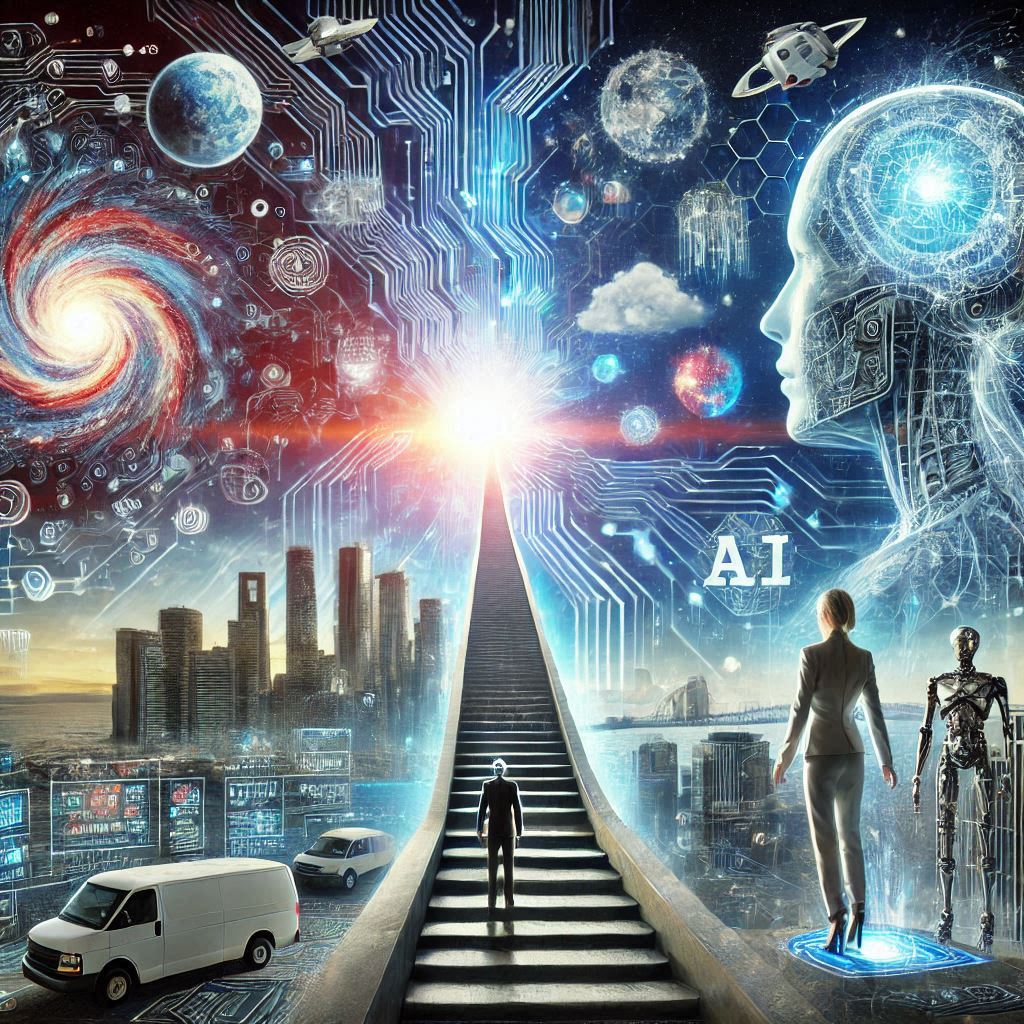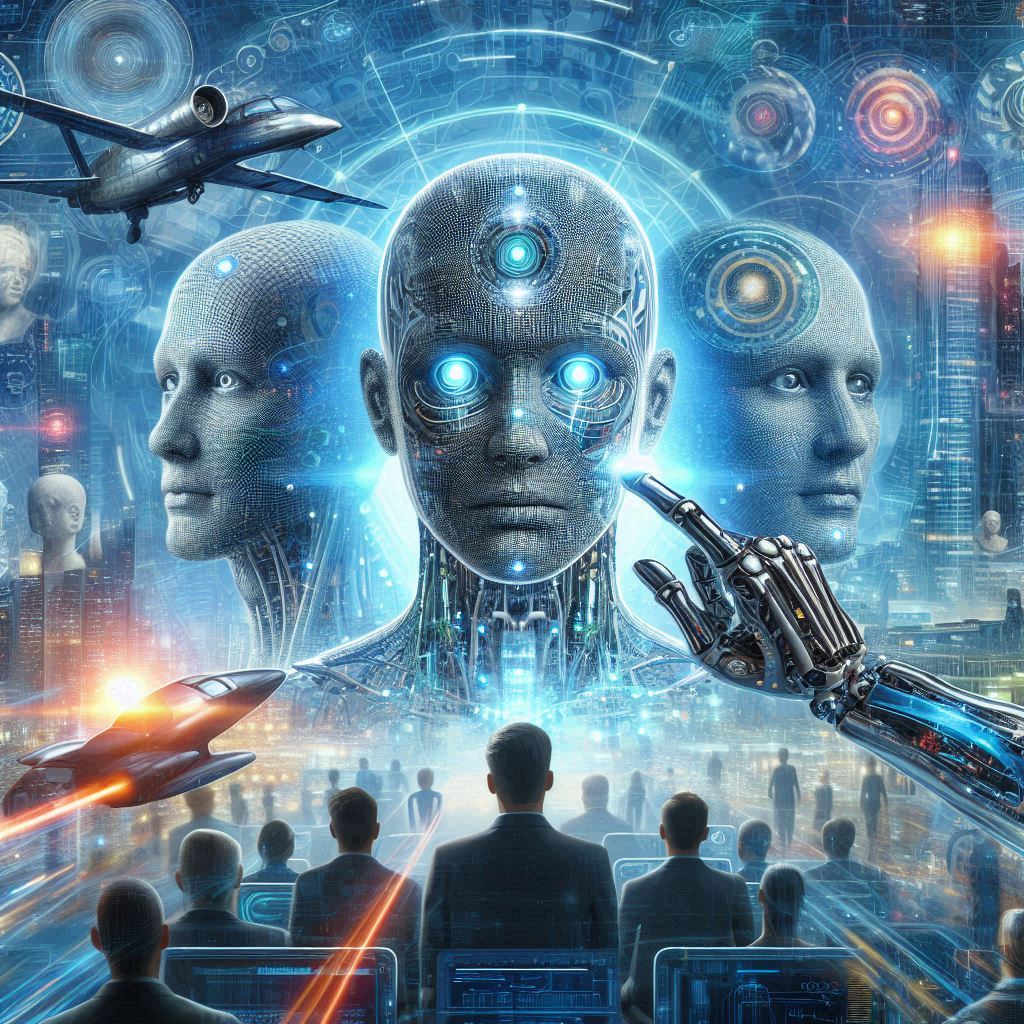Table of Contents
Artificial intelligence (AI) is no longer a futuristic concept; it has firmly integrated into our lives, driving innovations in various industries. But what does the future hold for AI? This article explores the potential evolution of AI and its transformative impact on society, industries, and ethical considerations.
The Current Landscape of AI

AI has made remarkable strides in recent years. From natural language processing systems like ChatGPT to self-driving cars and AI-powered healthcare solutions, the technology is reshaping industries. Machine learning (ML), deep learning, and neural networks form the backbone of these advancements, enabling machines to analyze data, recognize patterns, and make decisions.
However, current AI systems are task-specific, known as narrow AI. These systems excel in specialized areas but lack the general cognitive abilities of humans. The future evolution of AI aims to bridge this gap.
Resource for AI Basics: What is Artificial Intelligence?
Trends Shaping the Future of AI
1. General Artificial Intelligence (AGI)
AGI refers to AI systems capable of understanding, learning, and performing tasks across a wide range of domains, much like human intelligence. While AGI remains theoretical, researchers are working on developing systems with higher levels of cognitive capabilities, including reasoning, problem-solving, and emotional understanding.
2. Human-AI Collaboration
The future of AI will likely focus on augmenting human capabilities rather than replacing them. Collaborative AI systems, such as co-creative tools for artists and decision-support systems for professionals, will enable humans to achieve more by leveraging AI’s speed and accuracy.
3. AI in Healthcare
AI’s role in healthcare is expected to expand, including predictive analytics, personalized treatment plans, and AI-driven drug discovery. Wearable devices powered by AI will monitor health in real-time, allowing early detection of diseases.
Further Reading: AI in Healthcare
4. Autonomous Systems
From autonomous vehicles to drones and robotic assistants, AI will power the next generation of self-operating systems. These advancements promise increased safety, efficiency, and accessibility.
5. Ethical and Transparent AI
As AI systems grow more complex, ensuring their ethical use becomes critical. Transparency, explainability, and fairness in AI algorithms will be prioritized to prevent biases and misuse.
Helpful Resource: AI Ethics Guidelines
Potential Applications of Future AI

1. Smart Cities
AI will optimize urban living through smart traffic systems, energy-efficient buildings, and predictive maintenance. These technologies aim to enhance quality of life and reduce environmental impact.
2. Education Transformation
AI will revolutionize education by offering personalized learning experiences. Adaptive learning platforms will cater to individual student needs, ensuring no one is left behind.
3. Climate Change Solutions
AI will play a significant role in addressing environmental challenges. By analyzing vast amounts of data, AI can predict climate patterns, optimize renewable energy usage, and develop sustainable solutions.
Case Study: AI for Climate Action
Challenges Ahead
Despite its potential, the evolution of AI comes with challenges:
1. Data Privacy and Security
AI systems require massive amounts of data, raising concerns about privacy and security. Robust measures will be needed to protect sensitive information.
2. Job Displacement
Automation may lead to job losses in certain sectors, necessitating reskilling and upskilling of the workforce to adapt to new roles.
3. Regulation and Governance
Developing global regulations for AI will be crucial to ensure its safe and ethical use. Policymakers must balance innovation with oversight to prevent misuse.
Explore More: Regulating Artificial Intelligence
The Ethical Implications
As AI systems become more autonomous, ethical questions will grow. How do we ensure AI decisions align with human values? Who is accountable for AI-driven mistakes? Addressing these questions will be vital to fostering trust in AI.
Conclusion
The future of AI holds immense promise, from transforming industries to addressing global challenges. However, realizing its full potential requires careful planning, ethical considerations, and collaborative efforts across sectors. As we stand on the brink of an AI-driven era, the responsibility lies with us to guide its development for the betterment of humanity.
AI’s evolution is not just a technological journey but a societal one. By understanding its possibilities and challenges, we can shape a future where AI complements human intelligence and improves lives worldwide.
Start Exploring AI Today: Future of AI
Posted inAI



Pingback: The Role of AI in Climate Change Solutions - emreblog.com